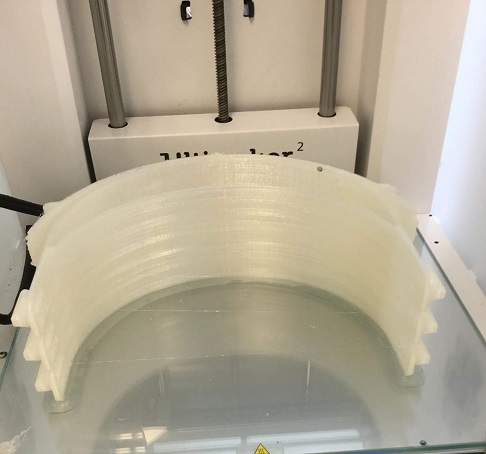Over 10,000 people took part in a rally at the Hawaii State Capitol on Saturday, June 6, to show solidarity with the black community against systemic racism and police brutality. It was the largest of several peaceful protests that took place across the state in response to the recent killing of George Floyd.
Following the rally, the Honolulu chapter of the National Association for the Advancement of Colored People (NAACP) held a virtual town hall meeting featuring a panel of community leaders, including Chaminade Professor Dr. Allison Paynter. Paynter was joined by the Reverend Dr. Anthony Cook from Trinity Missionary Baptist Church; John McCarthy, the deputy chief of the Honolulu Police Department; Rep. John Mizuno from the Hawaii State Legislature; and Christel Thompson, a family counselor.
Co-host and NAACP Honolulu Branch President Alphonso Briggs began the town hall by explaining that the meeting was designed to be the next step after the march. Now that the rally was over, what could be done to continue discussions and further efforts to address systemic racism?
Hawaii Supreme Court Chief Justice Mark E. Recktenwald helped put the issue of racism into a local context. “I want to make very clear—this is not just an issue for the mainland,” stated Recktenwald. “One study showed here in Hawaii, a person who is black is more than twice as likely to be imprisoned than a person who is white. So we have a lot of work to do.”
John McCarthy, deputy chief of the Honolulu Police Department, opened by immediately calling out the killing of George Floyd. “I’ve been in law enforcement for 44 years with the Honolulu Police Department,” said McCarthy. “I’ve seen a lot of things, but even that was disturbing and appalling and should never have happened, anywhere. It just shouldn’t have gone down that way.”

Dr. Allison Paynter offered a historical perspective, comparing today’s perceptions of African Americans to a quote from the early 20th century by one of the co-founders of the NAACP, James Weldon Johnson.
The quote reads: “The battle was first waged over the right of the Negro to be classed as a human being with a soul; later, as to whether he had sufficient intellect to master even the rudiments of learning; and today it is being fought out over his social recognition.”
To Paynter, the quote reflects how unfortunate it is that nearly 100 years later, “we are still trying to establish the African American as a viable, just and equitable partner in the citizenship of America.”
The outrage Paynter sees flooding the streets across the nation is not surprising to her. She supports the emotional responses and sees them as a vital component to our wellbeing, but she encouraged protesters to channel their aggression into creative venues. She called on youth to use their words, their social media platforms, their art and their politics to demand effective change.
While Paynter described racism as “the most virulent virus around,” she understands how the current COVID-19 pandemic in conjunction with civil rights protests across the nation has many on edge. As the only higher education representative on the panel, she recognized that parents of college-aged students may be feeling incredibly anxious about a fall return to the classroom given recent events. She described Chaminade’s plan for hybrid learning—combining face-time in the classroom with online lectures and seminars—as one way forward.
“The most important thing a family can do is speak to their institutions and make sure that any concerns they have are answered,” offered Paynter. “I think all of our faculties and administrators across the nation are willing to take part in that discussion.”
Just as she began, Paynter closed her time by putting today’s protests into a historical context. “When we look at protests against slavery and the civil rights movement, we tend to look at them as closed capsules where we only have African Americans fighting for and dying for justice.” Paynter points to examples of that changing now—last week alone there were peaceful rallies in all 50 states standing in solidarity with the Black Lives Matter movement.
With new technologies and new ways of documenting injustices and organizing communities emerging, Paynter sees a growth in global awareness that we are all humans. “There is a media presence today that we didn’t have access to in the ’60s,” says Paynter. “We cannot be silenced, nor should we be silenced.”
She concluded by calling for intergenerational collaboration. “When I look back at some of these protests and protesters, and I see these voices coming forward in our youth, I am heartened,” says Paynter. “I am of one generation, you are of another. We need to come together and make sure there is a pathway for kindness, love and justice in the future.”
The full town hall meeting is available for viewing on the KHON website.









